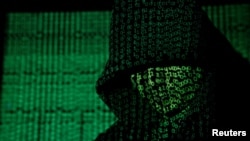Digital advances are at once a tremendous boon for people and societies everywhere, and one of the greatest security challenges of our time. According to a joint statement by over 60 UN Member States and the European Union, “the malicious use of cyberspace poses significant challenge in today’s interconnected world, as states rely heavily on digital infrastructure for communication, commerce, and governance.”
“Cybersecurity enables our most basic systems to function: our economies and democratic institutions,” said Linda Thomas-Greenfield, U.S. Permanent Representative to the UN. “And yet, far too many state actors and non-state actors have taken an opposite tack.”
“Across the world, they have exploited digital connectivity to extort victims for profit, steal money and ideas from governments and private entities, they target journalists and human rights defenders, pre-position for future conflict, and threaten our critical infrastructure, including here at the United Nations,” she said.
“The Framework for Responsible State Behavior in Cyberspace – adopted repeatedly and by consensus – makes clear that international law applies in cyberspace, and that states are expected to uphold voluntary norms of state behavior during peacetime,” said Ambassador Thomas-Greenfield. “And yet, some who have endorsed that Framework nevertheless choose to ignore, or worse, empower bad actors.”
“That includes malicious DPRK cyber operations, which are used to fund its Weapons of Mass Destruction and ballistic missile programs,” she said. “And it includes Russia’s cyber activity in Ukraine, Germany, Czechia, Lithuania, Poland, Slovakia, and Sweden – where, among other activities, Russia’s General Staff Main Intelligence Directorate has targeted political parties and democratic institutions.”
“Not only that, the Russian government has served as a safe-haven for ransomware actors – who, in recent years, have caused billions of dollars of losses and significant damages to hospitals and other critical infrastructure.”
“We call on every state to do their part to implement the Framework and promote peace and stability in cyberspace,” said Ambassador Thomas-Greenfield.
“Whether it’s considering how peacekeeping operations can promote good cyber hygiene to limit risks, or better understanding how cybersecurity could enhance non-proliferation efforts, this Council must continue to view challenges through the lens of cybersecurity.”
“Let us affirm, reaffirm, the applicability of international law to state-on-state behavior,” said Ambassador Thomas-Greenfield. “Let us promote adherence to voluntary norms of responsible state behavior in peacetime and help reduce the risk of conflict stemming from cyber incidents. And let us uphold the rules-based international order and ensure that the digital world impacts the physical world for better.”














